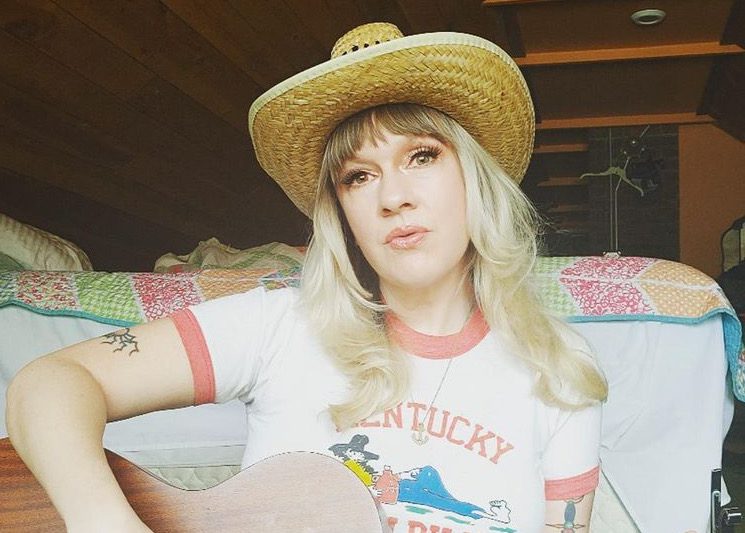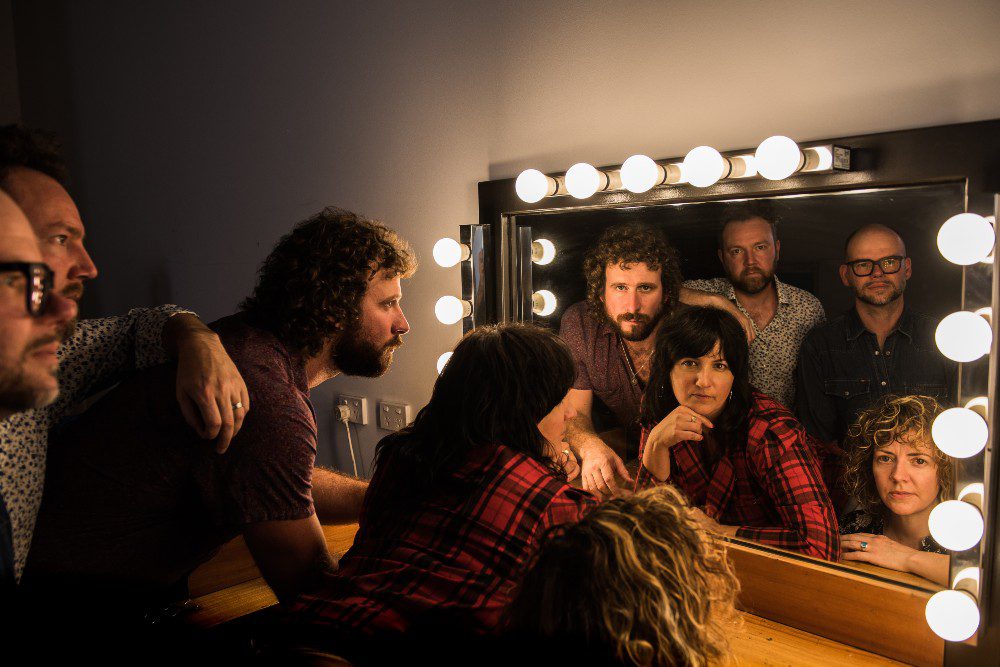

Kelly Jean Caldwell is not dead. The singer, songwriter, and owner-operator of Hamtramck’s Outer Limits Bar and record label laughs as she tells me a rumor of her death has been swirling around town. “The other day, someone at the bar was asking what’s the next show coming up,” she explains, “and they [the bartender] were like, ‘oh it’s the Kelly Jean Caldwell/Loose Koozies record release show, and the person was like, ‘Oh, I thought Kelly Jean Caldwell died.’” Conversely, Caldwell is one of the liveliest people I’ve ever had the pleasure of talking to. A mother of two, she gracefully floats between answering my questions and ogling a unicorn drawing made by her daughter, Birdie, the namesake of her latest record.
Although Birdie was released in December of 2020, the record never received a proper release show due to the pandemic. So, this Saturday, June 12, Caldwell will finally play the record live at Outer Limits, joined by Monica Plaza and best friends and label mates, the Loose Koozies. Originally scheduled for last July, Caldwell explains that this show feels like a triumphant return after a year and a half of playing alone or to a computer screen. In a similar way, Birdie feels like a triumphant return to the studio after her last album release, Downriver, in 2016. She says that this record finds her at her strongest as a musician, person and a mother. “I am getting older I’m getting stronger, I’m a better musician, I’m a better lyricist,” Caldwell explains. “I feel like I’ve definitely come up as a musician. I’m more confident than ever.”
Part of this transformation is owed to Caldwell’s deeper exploration of the flute over the last few years. “My flute teacher changed my life,” she says. Though she’s played flute for years, Caldwell says taking lessons completely changed her perspective on the instrument and songwriting in general. She was pushed to go outside her comfort zone and learn things she hadn’t tried before, like reading music and playing classical songs. After months of practicing three hours a day, Caldwell’s lessons culminated in a classical flute recital at Outer Limits where she donned her wedding dress and played a full classical repertoire accompanied by friends.
This transformative experience, in tandem with all the frightening and beautiful events that accompany motherhood, helped shape the colorful sound that characterizes Birdie. The album’s title track opens with swooping layered flute melodies, reminiscent of the magic and innocence of childhood. “All those ’70s rockers have songs about their daughters but you’re not sure if it’s about their lover or their dog,” Caldwell laughs. “I was like, ‘I wanna write one like that… a creepy song about my kid.’” But, honestly, the song leans more towards tear-jerky than creepy, especially when guided by Caldwell’s instinctively poetic lyrics.
She opens the song with a dreamy description of motherly love – “Sunshine follows my flower all the time/Blue eyes water my dreams ‘til summertime.” The song then opens up into a ’60s rock-type tempo, seemingly mirroring the fast-paced and sometimes chaotic rhythm of parenting. Bright guitars and Caldwell’s vivid depictions welcome the listener into a world of vibrant colors and endless possibilities. You can imagine Caldwell running around in the backyard with her daughter, blowing bubbles and creating their own world together, especially when she sings, “She’s got glitter in her hair/She grows flowers everywhere.” She’s able to capture these moments of pure happiness like a firefly in a jar and distill them into a few simple lines.
But, ever the honest songwriter, Caldwell makes room for both the precious and ominous sides of motherhood in Birdie. She explains that “SIDS,” one of the most musically upbeat sounding tracks on the record, is about being terrified that her son was going to pass away in his sleep. “I was really obsessed with Sudden Infant Death Syndrome,”explains Caldwell. “This was about my son and he obviously survived. But, when you have a new baby, you really, or at least I, felt like they were so close to death. I really felt like they could just switch back to the other side at any moment.”
Unless you’re really listening, you wouldn’t notice the somber nature of the song, and that’s exactly how Caldwell meant it to be. “I didn’t want it to sound sad because I didn’t want people to worry about me,” says Caldwell. “So it’s probably the most upbeat rockin’ song I’ve ever written.” She explains that channeling her worries into music was the most natural way she knew how. The song’s fuzzy guitars and punchy chorus melody beget a story of hope and tenacity while Caldwell’s trepidatious lyrics ask the morbid question: “Does it call you back/Do the stars attack/Or will the dark dream continue?”
As a musician who has never been anybody but herself in her songwriting, Caldwell’s vulnerable lyricism allows listeners to connect on a deeper plane. Even if you haven’t experienced motherhood and the anxieties that come with it, you can relate to the paralyzing fear of loss and the euphoric happiness of being with someone you love completely. “I think that, weirdly, the more specific you get about things, the more people relate,” says Caldwell. “The more personal that I make things and the more truthful, the more people feel it.”
Follow Kelly Jean Caldwell on Instagram for ongoing updates.









